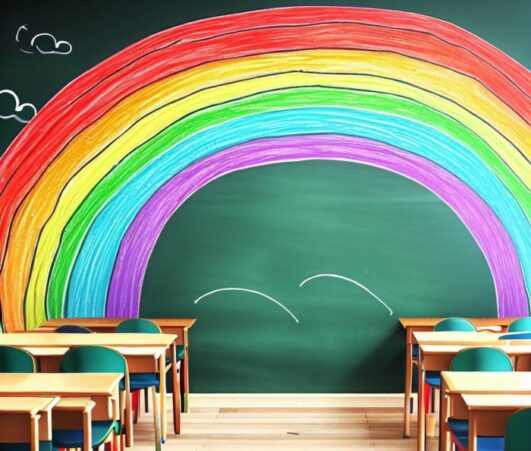In the 28-page document, the word ‘birth’ appears only once and not in relation to pregnancy, which is a natural consequence of sex. No, the word “birth” occurs only in the definition of gender identity, with the bizarre expression “sex registered at birth”.
The NCCA document says: “Gender identity: a person’s felt internal and individual experience of gender, which may or may not correspond with the sex registered at birth.”
It seems to suggest that the sex of a newborn is noticed and registered not according to science, in an objective manner, but by some arbitrary or curious cultural practice.
It also says: “when children are born, their sex is largely decided or ‘assigned’ on the basis of their external genitalia, which generally – but not always – reflects their internal hormonal and chromosomal make-up.” These cases exist but are extremely rare. Why do young students need to be told about rare anomalies rather than what normally happens?
While in the 2016 version of the same document, “gender” appeared only 5 times, in the updated Curriculum Specification it is used 19 times – a huge increase – while there is no mention of “woman” or “girl” at all. “Boys and girls” also seems to be a politically incorrect expression nowadays, maybe not sufficiently inclusive of all other identities, and it is avoided by the Department of Education.
The word “female” is used only three times by the NCCA, two of which appear in the definition of ‘gender’: “Gender: Refers to the social and cultural factors influencing what it means to be male and female, i.e. the socially constructed roles, behaviours, activities and attributes that a given society considers appropriate for men and women. It is important to distinguish gender from ‘sex’ which refers to the biological and physiological characteristics that are defined as being male and female.”
This is also the only occurrence of the word “women” in the whole document.
It is pretty obvious that the updated SPHE course focuses not much on sex, i.e. the differences between being a boy or a girl according to science, but on the ideological notions of gender identity and gender expression. These are the priorities of the Department of Education and of the NCCA.
Instead of sex education, the new course should be renamed as “gender ideology education”.

















